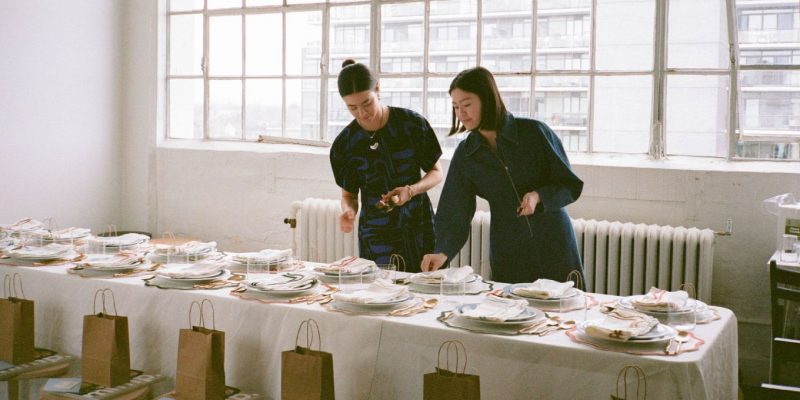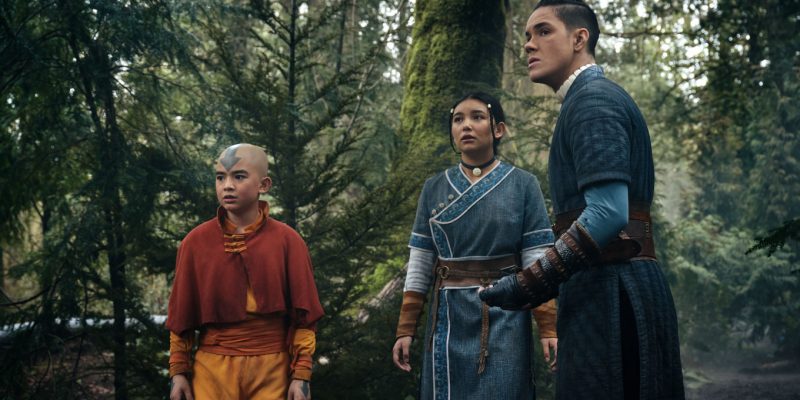Movies & TV
Ava DuVernay Is Taking a Look at the More Intimate Picture
With Origin, DuVernay is hoping to get audiences to see caste as the starting point of so many of our experiences—a perspective that will put us all on better footing to be able to work on justice.
by : Kelly Boutsalis- Mar 12th, 2024
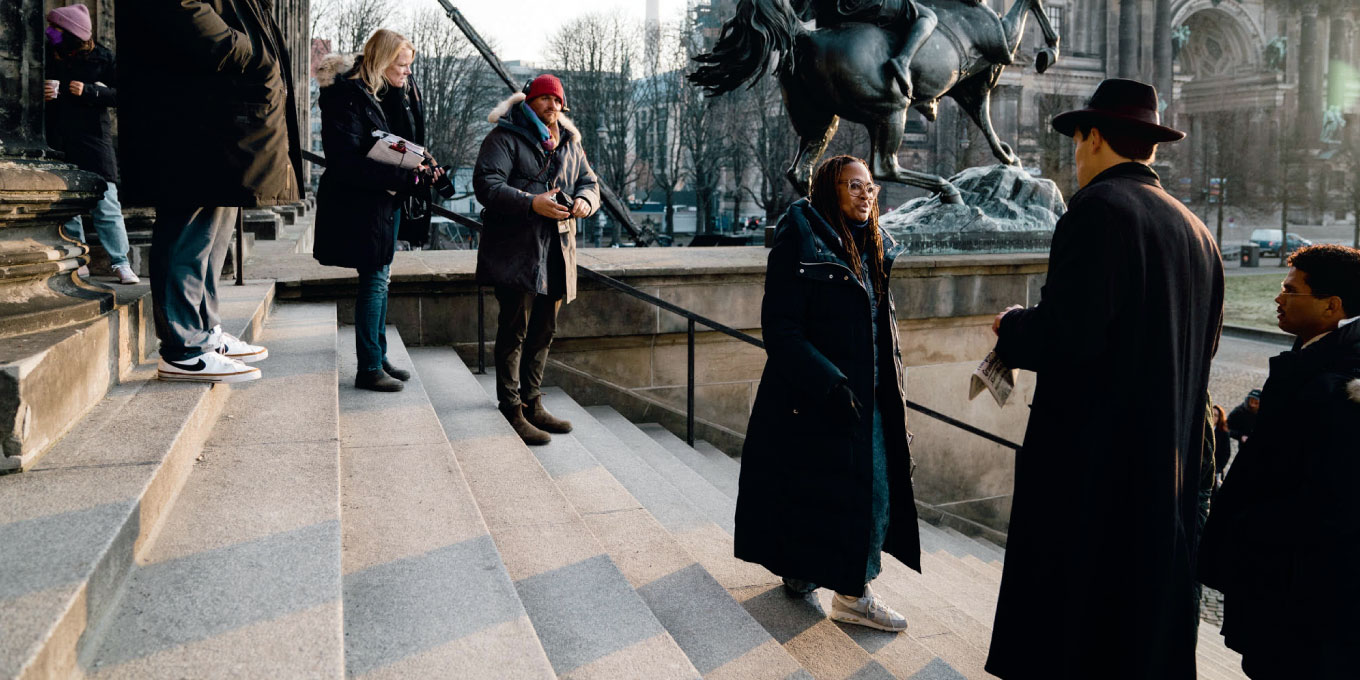
ATSUSHI NISHIJIMA, COURTESY OF NEON
When Ava DuVernay arrives in Toronto during early winter, her voice is raspy and well worn, but it’s the only indicator of how exhausted she is. Clad in flowing black pants, a turtleneck and a sprinkle of gold jewellery, the acclaimed director looks impossibly chic as she rises from a leather club chair in the green room at Toronto’s TIFF Bell Lightbox theatre to warmly welcome me.
DuVernay is in town to unveil the Lightbox’s newly christened Viola Desmond Cinema with Origin, her latest film. It’s a timely and gripping movie chronicling a fictionalized version of journalist Isabel Wilkerson’s creation of her New York Times Best Seller Caste: The Origins of Our Discontents. But don’t expect the film to just be following a woman into libraries and capturing her typing on her laptop—though those moments do fleetingly appear onscreen—as it’s more about a writer discovering how profoundly connected humanity is across countries and time periods. Wilkerson investigates caste—the system most often associated with India’s fixed social orders, with the privileged upper caste repressing the lower caste—and how far it reaches globally, tying together India, Nazi Germany and the U.S. And as she works, she also loves and grieves and navigates her own life.
The film and the theatre’s namesake make a beautiful pairing, considering that Viola Desmond is a Canadian icon—a Black Nova Scotian who refused to leave her whites-only theatre seat in her home province in 1946. And Origin is helmed by DuVernay, an Emmy-winning and Oscar-nominated Black director, stars Black actor Aunjanue Ellis-Taylor and is based on a book written by a Black Pulitzer Prize-winning writer.
“I read it again, and I read it a third time. By that time, the weight of what it is really sunk in—it hit me, and I thought, ‘Everybody’s got to know about this.’”
I reach into my bag and pull out the 2020 book that has brought us together today and sheepishly confess that I haven’t gotten through all 400-plus pages. DuVernay checks where my bookmark is and graciously tells me, “You’ve done the work right there!” She then admits that it took her reading Caste several times before she truly understood it. “When I got to the end of the book, I still couldn’t quite articulate what caste is,” she says. “Even though [Wilkerson] says it in a bunch of different ways, I didn’t grasp it. So, I read it again, and I read it a third time. By that time, the weight of what it is really sunk in—it hit me, and I thought, ‘Everybody’s got to know about this.’”
With Origin, DuVernay is hoping to get audiences to see caste as the starting point of so many of our experiences—a perspective that will put us all on better footing to be able to work on justice. It’s a vision that inspired her to turn the non-fiction book into a film, even though many people along the way told her it was unadaptable. “What are you going to do—[take] a bunch of historical stories and put them together?” they would ask her. But she was up for the challenge and knew where to look for the film’s captivating centre. “As a storyteller, I’m most hooked when I’m following someone I care about,” she says. “I’ve got to have someone taking me through the story.”
She found that someone in Wilkerson, who, despite the lack of intimate detail revealed in her book, has had an eventful and devastating personal life, which DuVernay discovered in her research. It was the author’s unmentioned personal losses—those of her husband, mother and cousin—that really struck the director. “I became fascinated by the fact that someone could lose the three closest people in their life within 16 months and still write a book of that magnitude,” says DuVernay.
Ellis-Taylor, most recently seen in King Richard and The Color Purple, gamely takes on the role of Wilkerson, living through those losses and guiding audiences through the journey of writing Caste. DuVernay and Ellis-Taylor had worked together before on the 2019 Netflix miniseries When They See Us, but as it was a massive project with a large cast, the director felt like she didn’t get a lot of time with Ellis-Taylor, though she could sense that the actor was a singular talent and wanted to work with her again.
“I’m very much interested in the stories of people who are not usually centred and centring those who lead robust lives and robust communities but are left out of cinema,” says DuVernay. “Certainly, the prospect of following the intellectual and creative journey of a Black woman journalist was deeply meaningful and exciting, and Aunjanue Ellis-Taylor portrays her with such a quiet charisma—a slow and steady kind of certainty and a fire.”
I get the sense that DuVernay could spend hours discussing the ideas presented in the book and her film, every word carefully selected. After all, she’s a former journalist and the writer of many of her films, including the acclaimed documentary 13th and episodes of Queen Sugar, the Oprah Winfrey Network tele- vision series she created. I’m fascinated by the arbitrary nature of caste. As an Indigenous person, I belong to a perceived lower caste, just as DuVernay does, and I use “flattened” to describe what these social hierarchies have done to us. She zeroes in on that word and says she’ll be using it herself in future interviews and that I should tell people “she got that from me.”
Given that DuVernay immersed herself in three readings of Caste, wrote the script and then shot the film in 37 days across three countries, I wonder whether she’s been changed in the process of making Origin. She doesn’t hesitate to confirm that she has. “Contemplating the idea of caste and the way we treat each other and the way we diminish each other has shifted the way I see myself and my place in the world,” she says thoughtfully. “The way you treat someone—when you’re walking out of your hotel or getting into your Uber—echoes through time and space. A person you diminished goes about their day feeling diminished and then does something that affects the next person. We’re so linked, and we’re so interconnected.”
Read more:
20+ Inspirational Black Canadians To Know
Meet the First All-Indigenous Modelling Agency
Claudia Dey’s New Novel Captures the Current Feminine Mood
Newsletter
Join our mailing list for the latest and biggest in fashion trends, beauty, culture and celebrity.
Read Next
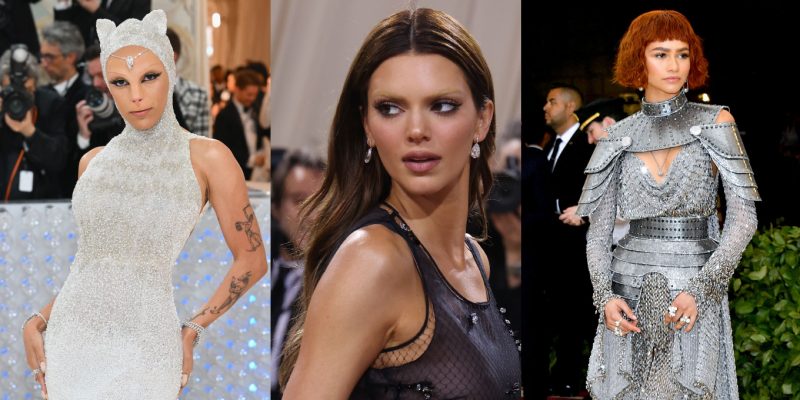
Beauty
The Best Met Gala Beauty Looks Of All Time
From Taylor Swift's 'Bleachella' era to Rihanna's iconic 2011 braids, meet the best beauty moments in Met Gala history.
by : Katie Withington- Apr 26th, 2024
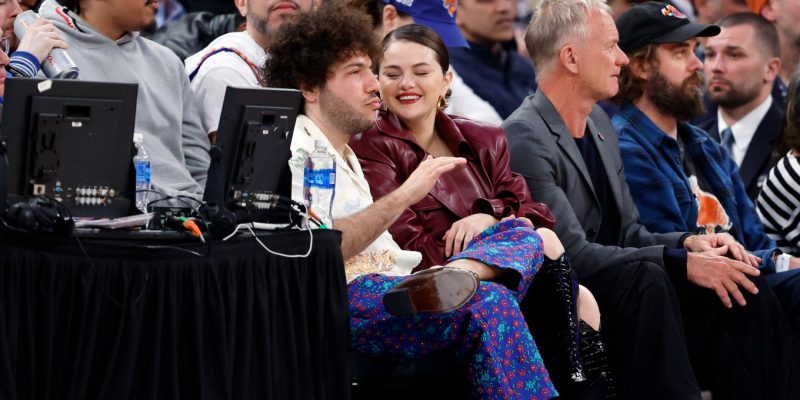
Culture
Benny Blanco Says He Fell in Love With Selena Gomez Without ‘Even Noticing’ It
Allow Benny Blanco to tell the straight-from-a-rom-com story of how he realized his feelings for his girlfriend and longtime friend.
by : Alyssa Bailey- Apr 26th, 2024

Culture
This University Elevates Women to New Professional Heights
You shouldn’t have to pause your life to move forward in your career.
by : ELLE Canada- Apr 16th, 2024

